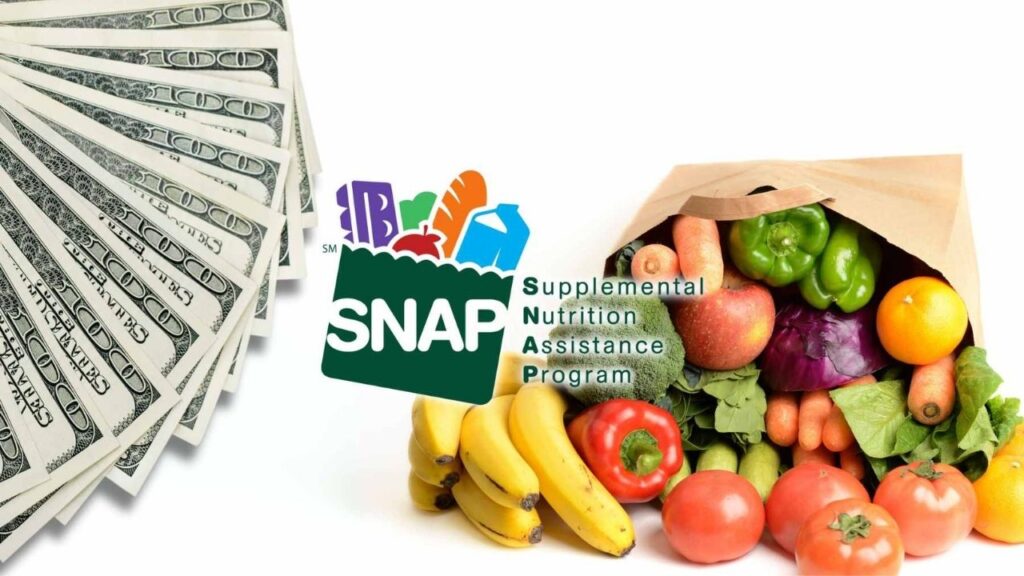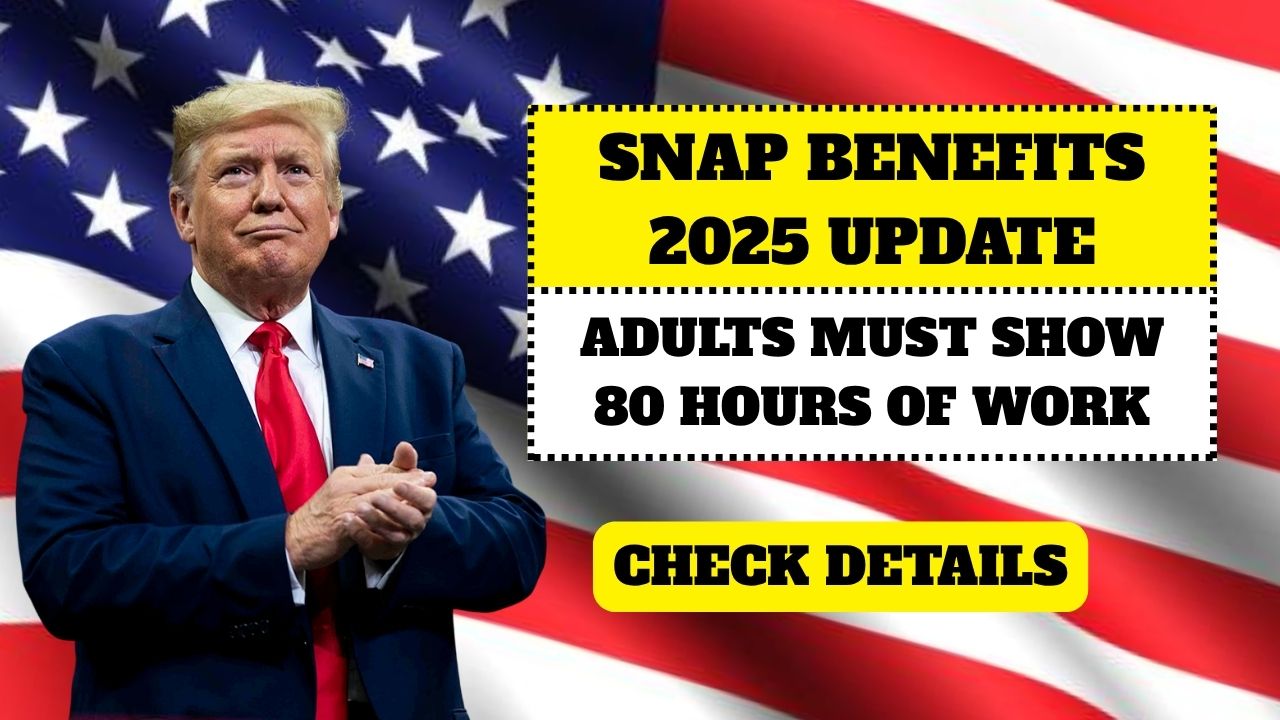The Supplemental Nutrition Assistance Program (SNAP) is the biggest federal food assistance program within the United States, providing monthly benefits to millions of low-income individuals and families. However, important adjustments are coming in 2025 on the way to dramatically have an effect on how many adults qualify for SNAP benefits.
Under the up to date federal guidelines, many adults will now be required to show they’re operating or taking part in permitted sports for at least 80 hours in step with month to hold receiving help. This shift is part of the government’s effort to growth team of workers participation, reduce dependency, and make certain benefits are focused to those with the finest want.
The new rule has sparked massive discussion, especially as it expands work necessities to more age agencies and increases the verification burden on recipients.
What Is the SNAP Rule Change for 2025?
Beginning in January 2025, many able-bodied adults without dependents (ABAWDs) can be required to complete 80 hours in keeping with month of:
- Work
- Job training
- Community service
- Workfare
- Education or skill-building programs
Recipients who fail to satisfy the requirement for three months inside a 36-month duration hazard dropping their SNAP benefits. This rule is an increase of the present ABAWD work requirement, however with broader age coverage and stricter verification requirements.
Who Must Follow the 80-Hour Rule?
The updated policy targets ABAWDs – Able-Bodied Adults Without Dependents, meaning:
- Ages 18 to 59
- Physically capable of working
- Not pregnant
- Not living with a dependent child under 18
This is a significant expansion. Previously, work requirements applied mainly to those aged 18–49. By 2025, the upper age limit reaches 59, bringing millions more adults under the mandate.
Who Is Exempt from the Work Requirement?
Some individuals will not be required to meet the 80-hour rule. Exemptions include:
- Adults with a disability
- Pregnant women
- People living with a toddler underneath 18
- Adults experiencing homelessness
- Veterans
- Youth growing older out of foster care (18–24)
- Individuals not able to work due to mental or physical conditions
- Participants in drug/alcohol treatment programs
- Those already operating as a minimum 30 hours/week
States additionally have the capacity to use for waivers for areas with high unemployment or constrained job opportunities.
Why Is the Rule Changing?
The federal government argues that increasing workforce participation is essential for:
- Strengthening the exertions marketplace
- Reducing lengthy-term dependency
- Encouraging self-sufficiency
- Better focused on federal sources
Critics, however, warn that:
- Many recipients war to discover stable employment
- Rural areas lack sufficient process opportunities
- Increased paperwork may additionally motive many eligible Americans to lose advantages
- The policy may disproportionately affect low-income adults and minorities
The debate continues, however the rule of thumb is scheduled to move forward in 2025 until Congress acts in any otherwise.

How Will Recipients Prove Their 80 Hours?
To maintain benefits, adults must submit monthly verification, such as:
- Pay stubs
- Employer-signed timesheets
- Attendance records from training or education programs
- Community service logs
Missing or late documentation could result in temporary or long-term loss of SNAP assistance.
What Happens If You Do Not Meet the Requirement?
ABAWDs who do not meet the 80-hour requirement can receive SNAP benefits for only three months in a three-year window.
After that, benefits stop unless:
- The individual becomes exempt, or
- The state offers a special waiver, or
- The recipient begins participating in an approved work/training program
Impact on SNAP Recipients in 2025
The 2025 change is expected to:
- Affect millions of adults
- Increase pressure on state SNAP agencies to track work activities
- Reduce the variety of humans receiving long-term benefits
- Increase reliance on personnel work and community service programs
Many households that rely upon SNAP for meals get entry to may additionally locate it tough to keep compliance, especially those with volatile, seasonal, or gig-based work schedules.
How to Prepare Before the Rule Takes Effect
SNAP recipients are counseled to take proactive steps earlier than November 2025:
| Action | Details |
|---|---|
| Check Your Status | Contact your local SNAP office to confirm if the new rule applies to you. |
| Track Your Hours | Maintain clear documentation of all work, volunteering, or training hours. |
| Request Exemptions | If you face genuine barriers such as illness or lack of transport, inquire about temporary waivers. |
| Stay Informed | Follow state updates in case your region implements the rule gradually. |
Failing to comply with those steps may want to cause suspension of benefits , even for folks who rely on SNAP for essential meals aid.
Conclusion
The SNAP Rule Change 2025 marks one of the most significant updates to the program in current years. By increasing work necessities to more adults and mandating 80 hours of monthly hobby, the government ambitions to boost employment while reducing long-term reliance on meals help. However, the policy will convey foremost challenges for tens of millions of Americans, specially those with risky jobs, health obstacles, or restricted get right of entry to to education applications.
Staying knowledgeable, know-how exemptions, and preparing documentation early will be critical for averting advantage interruptions. Whether this variation results in more potent staff participation or deeper food lack of confidence will depend on how successfully states put into effect support structures for the ones affected.


